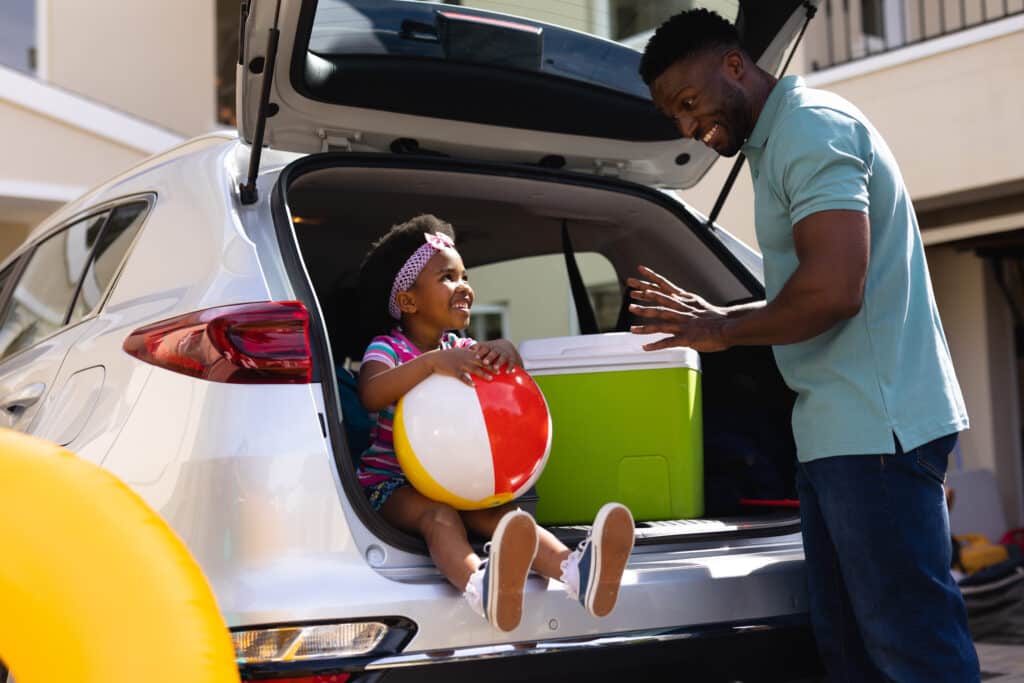The less white your zip code, the more you’ll often pay for car insurance. MoneyGeek analyzed 1,648 ZIP codes in 69 cities across the U.S and found that the problem is massive. In fact, in a great number of cities living in a “diverse” zip code can have a negative impact on your car insurance premium similar to a speeding ticket. What’s the solution? Let’s take a deeper look into auto insurance, with an assist from the Insurance Information Institute.
Auto insurance is a contract between you and your insurance company that protects you against financial loss in the event of an accident or theft. Essentially, if you pay a premium, the insurance company agrees to pay your losses, according to what is outlined in your policy. Below are the basics covered by car insurance:
- Property – such as damage to or theft of your car
- Liability – your legal responsibility to others for bodily injuries or damage property
- Medical – the cost of treating injuries, rehabilitation, lost wages or funeral expenses
Coverages are priced a la carte, allowing you to customize your package based on what you need and how much you’re able to afford. Car insurance policies usually cover you for 6 or 12 months and are renewable.
Who Does Your Policy Cover…and When?
You and other family members on your policy are covered when driving your car or when someone else gives you permission to drive theirs. If you allow a friend to drive your car, your policy will also cover you in that case. Important to note, your personal auto policy only covers you while driving for personal reasons, which may include commuting to work, running errands or taking a trip. If you’re using your car to Uber or deliver food, those are considered commercial purposes and are not covered. However, some insurers are now offering supplemental insurance policies (for an additional fee) to cover those activities. That’s important because Blacks are far more likely than whites to have side gigs.
Is Car Insurance Mandatory?
Car insurance is a fact of life, unless you live in New Hampshire and possibly in Virginia. New Hampshire is the only state that doesn’t mandate car insurance. However, drivers who choose not to buy car insurance must prove sufficient funds to meet the state’s financial responsibility requirements should they cause an accident. Virginia requires car insurance but drivers are allowed to opt out of the state’s insurance requirements if they pay a $500 uninsured motorist fee each year. However, at-fault drivers are still responsible for damages. For everyone else, however, some form of personal car insurance is required.
Auto insurance requirements vary from state to state and if you’re financing a car, your lender might also have unique requirements. In general, every state requires car owners to carry:
- Bodily injury liability – which covers costs associated with injuries or death that you or another driver causes while driving your car.
- Property damage liability – which reimburses others for damage that you or another driver operating your car causes to another vehicle or other property, such as a fence, building or utility pole.
Many states also require that you carry:
- Medical payments or personal injury protection (PIP), which provides reimbursement for medical expenses for injuries to you or your passengers. It will also cover lost wages and other related expenses.
- Uninsured motorist coverage reimburses you when an accident is caused by a driver who does not have auto insurance—or in the case of a hit-and-run. You can also purchase under insured motorist coverage, which will cover costs when another driver lacks adequate coverage to pay the costs of a serious accident.
Even if PIP and uninsured motorist coverage are optional in your state, it’s still a good idea to add them to your policy for greater financial protection.
What are Other Auto Insurance Coverages?
Most basic, legally mandated auto insurance covers the damage your car causes but it does not cover damage to your vehicle. To cover your own car, you should consider these optional coverages:
- Collision reimburses you for damage to your car that occurs as a result of a collision with another vehicle or other object—e.g., a tree or guardrail—when you’re at fault. While collision coverage will not reimburse you for mechanical failure or normal wear-and-tear on your car, it will cover damage from potholes or from rolling your car.
- Comprehensive provides coverage against theft and damage caused by an incident other than a collision, such as fire, flood, vandalism, hail, falling rocks or trees and other hazards—even getting hit by an asteroid!
- Glass Coverage provides coverage from windshield damage, which is common. Some auto policies include no-deductible glass coverage, which also includes side windows, rear windows and glass sunroofs. Or you can buy supplemental glass coverage.
What is Gap Insurance and is it Necessary?
Collision and comprehensive only cover the market value of your car, not what you paid for it. Since new cars depreciate quickly, if your car is totaled or stolen, there may be a “gap” between what you owe on the vehicle and your insurance coverage. To cover this, you may consider purchasing gap insurance to pay the difference. For leased vehicles, gap coverage is usually rolled into your lease payments.
Auto insurance is complex and as with most things, bias does rear its ugly head. BLK Insurance has agencies across the country who can compare coverages from a range of different carriers and find the best, most cost-effective solution for you and your family. Find an agency today!

